2011
What does “gluten-free” mean to you? How do you know if something is “gluten-free” enough? What would it take for you to trust a product enough that you would feed it to your celiac child or risk your own health to sample it?
These are questions we, as gluten-free consumers, ask ourselves daily. We are not following a gluten-free diet to lose weight or because a TV star recommended it. We are the consumers who follow this diet because it is medically necessitated, and always will be for us. We are not going to fall off this gluten-free wagon — our health and longevity absolutely depend on it. We therefore must make choices daily about what foods we trust enough to put into our bodies, and which food companies we trust enough to supply that food for us.
There currently is no federal standard for what is a scientifically accepted amount of gluten in our food that is tolerable. The FDA has yet to act on Congress’ mandate under the Food Allergen Labeling and Consumer Protection Act (FALCPA) of 2004 to establish such a standard. Lacking this federal “gluten-free” standard nearly three years overdue, we are left to rely solely upon the representations made by food companies about the safety and “gluten-free” status of their products. Opinions differ on these facts though, and anyone browsing the grocery store shelves can see how difficult it is for a gluten-free consumer to discern which products are truly safe to eat.
The only way for any of us to be absolutely certain of the testing procedures used by a food manufacturer, and of the ultimate tested level of gluten in any given product, is to rely upon the independent certification of the Gluten Free Certification Organization (GFCO) or the Celiac Sprue Association (CSA).
The GFCO is the most widely recognized independent organization (a division of the Gluten Intolerance Group of North America), and exists for the sole purpose of standardizing, evaluating, teaching, testing, monitoring and publicizing the true gluten-free status of a given product. Companies go to the GFCO and seek guidance and evaluation, they receive training on cross-contamination avoidance, and their products are rigorously tested and retested to ensure that they contain no more than 10 parts per million (ppm) of gluten — below most current scientifically accepted levels.
Companies which succeed in meeting these obligations and standards then receive certification from the GFCO which they may post in the form of a symbol on their packaging that consumers may readily identify and trust to purchase and feed to their families. This relationship with GFCO is on-going, as these certified products will continue to be monitored and spot checked, the production facilities will continue to be inspected, and independently verified gluten testing will continue to be performed to ensure that no higher than 10ppm of gluten is contained in any certified product.
Achieving this certification is not easy and requires dedication, time and some expense, but this type of independently earned seal of approval is the only standard the public truly trusts.
This is a symbol the public may readily identify and comes with the assurance that such labeled foods are safe.
This is “certification.”
Many food companies are entering the gluten-free market — it has been one of the fastest growing grocery divisions for several years running, and companies understandably want in on the action. Some of these companies are well-established gluten-product-producing companies which have modified formulas or introduced new products to offer to gluten-free consumers. Understandably, many such consumers are skeptical of the cross-contamination procedures put into place by companies with long histories and product listings of gluten-containing foods. To assuage this doubt, companies may seek certification so that consumers are assured that these new products are truly, and consistently, gluten-free.
Some companies, however, have not sought such independent certification, leaving consumers to guess as to whether their products are safe. Others are apparently now claiming “certifications” they have not achieved, in an apparent effort to entice purchasers to buy their products.
 The latest such company is Post Foods, LLC. Below is Post’s press release on its reformulation of its Fruity and Cocoa Pebbles cereals, declaring that as of January 2011, they will be “certified as Gluten Free”:
The latest such company is Post Foods, LLC. Below is Post’s press release on its reformulation of its Fruity and Cocoa Pebbles cereals, declaring that as of January 2011, they will be “certified as Gluten Free”:
POST FOODS, LLC WORKING TO PROVIDE EVEN BETTER BREAKFASTS FOR KIDS
Cereal Corporation Announces Nutritional Changes to Pebbles Brand
PARSIPPANY, NJ (December 22, 2010) /PRNewswire/ — Post Foods, LLC, the makers of Fruity and Cocoa Pebbles, announced plans today to improve its most popular kids’ cereals in its ongoing effort to address the rise in nutritional concerns among American consumers.
Beginning in January, Post Fruity and Cocoa Pebbles cereals will have a lower sugar content of 9 grams per serving. In addition to lowered sugar levels, all Pebbles varieties are also Cholesterol Free, an Excellent Source of Vitamin D, Low Fat and provide 10 Essential Vitamins and Minerals.
Fruity and Cocoa Pebbles, rice-based cereals, will also be certified as Gluten Free, a relatively unique distinction in the cereal category. In response to increased concerns over celiac disease and products containing wheat gluten, the brand went through a rigorous process to achieve Gluten Free status on both Fruity and Cocoa Pebbles products.
“Post Foods is dedicated to providing both nutritious and delicious cereals for people of all ages, and we’re pleased to announce improvements to the Pebbles brand that will assist in our ongoing efforts to improve kids’ nutrition,” said Bart Adlam, President of Post Foods. “By lowering our sugar content and providing Gluten Free certification, we hope moms feel confident serving a cereal that combines the fun and heritage of Bedrock with great taste that kids love. “
Additionally, Post Foods is working as part of the Children’s Food & Beverage Advertising Initiative (CFBAI), a program launched by the Council of Better Business Bureaus to help tackle the issue of childhood obesity by changing the mix of advertising messages directed to children under 12 to include healthier choices. A report released Dec. 15th by the CFBAI shows Post Foods is demonstrating compliance with our pledge to advertise healthier foods to kids under 12.
“This is a wonderful holiday present for consumers – iconic cereals with the same great taste but lower sugar content,” said Elaine Kolish, Vice President and Director of the CFBAI. “We commend Post Foods for its commitment to making and advertising healthier choices for kids. This is one more great example of how the commitment to self regulation and responding to consumer needs is making a difference in children’s advertising.”
Media Contact:
Jennifer Mennes
Director of Media and Public Relations, Post Foods, LLC
973.658.2380
Many in our gluten-free community hailed this reformulation as another in a growing list of certified gluten-free food options for our families. A few people reached out directly to Post to sincerely thank them for their efforts on behalf of gluten-free consumers, and to welcome them to our community and to our table. In the course of communicating with Post, it was learned that, in fact, Post had not sought certification from an independent agency like GFCO.
Weeks of back and forth communication have ensued between several members of our community and Post, to be sure that they understood the issue and that they were not intending to truly become certified.
This was Post’s official response to one inquiry, explaining that they are actually self-certified:
From: Mennes, Jennifer [mailto:Jennifer.Mennes@PostFoods.com]
Sent: Friday, January 07, 2011 11:02 AM
To: Michael
Subject: RE: changes to fruity and cocoa pebblesThank you for your inquiry regarding of gluten free status of Fruity and Cocoa Pebbles. Post Foods has certified Fruity and Cocoa Pebbles as gluten free based on evaluations of the process to ensure there is no cross-contact with gluten containing products, in addition to supplier verification and finished product testing to ensure our products meet or exceed the standards for “gluten free”.
Thank you.
Jennifer
Jennifer Brain-Mennes
Director of Media and Public Relations
Post Foods, LLC
1 Upper Pond Rd.
Parsippany, NJ 07054
T: 973-658-2380
Below is the substantive communication between another father of a celiac child (his full name was redacted) and Post Foods:
From: Eric
Sent: Thursday, January 20, 2011 9:11 AM
To: Mennes, Jennifer
Subject: Re: Post Announces Nutritional Changes to Pebbles BrandJennifer,
I read with great excitement your press release announcing that Fruity and Cocoa Pebbles will be certified as Gluten Free. I was quite confused and frustrated when speaking to your customer service dept. as they could not tell me which organization is providing the gluten free certification, and in the weeks since my call no one has contacted me to clarify this, and the photos in your press release do not reveal the certifying organization’s symbol.
As a parent of a Celiac child, gluten free certification by reliable third party organizations is the gold standard in the gluten free food supply.
Please let me know what organization is certifying your products as gluten free or confirm the impression I got from customer service that perhaps these products do not carry independent certification.
Thank you,
Eric
_________
From: “Mennes, Jennifer” <Jennifer.Mennes@PostFoods.com>
To: Eric
Sent: Thu, January 27, 2011 1:50:49 PM
Subject: RE: Post Announces Nutritional Changes to Pebbles BrandEric:
Apologizes for the delayed response, but your email ended up in my junk folder.
Post followed a gluten free validation procedure that included certification from all ingredient suppliers, outside laboratory testing of all ingredients, testing the production line, and outside laboratory testing of the finished product. In addition, Post has instituted process controls to ensure there is no cross-contact with gluten containing products. We do not have third party verification symbols on the product boxes.
If you have further questions or concerns do not hesitate to let us know.
Thank you.
Jennifer
Jennifer Brain-Mennes
Director of Media & Public Relations
Post Foods, LLC
___________
From: Eric
Sent: Friday, January 28, 2011 5:18 AM
To: Mennes, Jennifer
Subject: Re: Post Announces Nutritional Changes to Pebbles BrandJennifer,
Thank you for your thoughtful reply.
While I deeply appreciate these steps to make sure that your cereals are gluten free, your use of the word certification is confusing and misleading to consumers with gluten intolerance and Celiac disease.
Certification is interpreted by consumers as an indication that an independent third party has reviewed the facility, production procedures and ingredients. You wouldn’t write that a product is certified organic if you didn’t have independent certification. The gluten free certification procedures and standards from an independent group like The Gluten Free Certification Organization run by the Gluten Intolerance Group of North America is clearly detailed on their web site.
Although your use of the word certification in your press release should be corrected and withdrawn, I would encourage Post to consider another path – adopting independent certification. To give you an indication of consumers of gluten free products view of independently certified products vs. manufacturers’ own gluten free claims, I have copied some recent comments from the Gluten Intolerance Group of North America Facebook page. Gluten free consumers are very savvy shoppers who spend many hours every week reading labels and calling food companies to ensure that they are avoiding gluten. As you can see, they recognize and deeply appreciate the value of independent certification.
Thanks again for your response,
Eric
__________
From: “Mennes, Jennifer” <Jennifer.Mennes@PostFoods.com>
To: Eric
Sent: Tue, February 8, 2011 2:24:46 PM
Subject: RE: Post Announces Nutritional Changes to Pebbles BrandEric:
Post stands by its statement and had implemented rigorous procedures and testing to insure our Pebbles products are gluten free. Thank you for your inquiry, we value our consumer feedback.
Jennifer
Jennifer Brain-Mennes
Director of Media & Public Relations
Post Foods, LLC
973-658-2380
To be clear, our community is asking food manufacturers for accountability to someone other than themselves. Self-certification is not certification. Since there is no federal standard for what is “gluten-free,” consumers cannot be sure to what standard companies like Post are holding themselves. Further, there are no assurances that Post Foods will continue to produce these cereals in a gluten-free manner and not change its formulas in the future. With independent certification, consumers can be sure of the continued, and understood “gluten-free” status of food products.
Independent certification not only makes sense from a gluten-free consumer perspective, but from a business perspective as well. Put simply, companies which make it easier for us to buy with assurance, get our food dollars and our brand loyalty.
For the third largest branded ready-to-eat cereal manufacturer in the United States, and one which has publicly declared its procedures to be rigorous and its ingredients to be gluten-free, such a certification should be a relatively simple and certainly affordable step in the right direction for consumer confidence and future sales.
To let Post Foods know that you care — that you want to see them stop misrepresenting that these cereals are “certified” gluten free, or that you would like for them to get “certified” through an independent agency like the GFCO, contact them directly.
Bart Adlam, President of Post Foods, LLC
via Scott Monette, ph: 314-877-7113
800 Market Street
St. Louis, MO 63101
Jennifer Brain-Mennes, Director of Media & Public Relations
Ph: 973-658-2380
Customer Service
Ph: 314-877-7000 / fax: 314=982-2134
To let Congress and the FDA know that you want FDA to finally act on the near three year old Congressional mandate that the FDA establish a standard for “Gluten Free,” contact them today through the American Celiac Disease Alliance.


















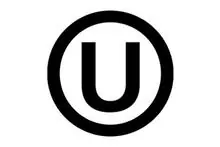
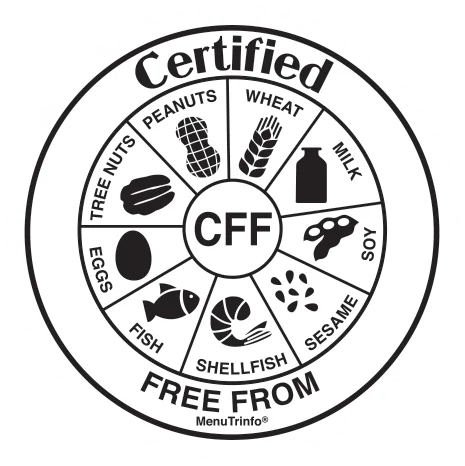
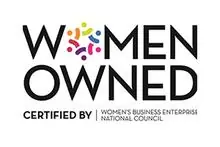
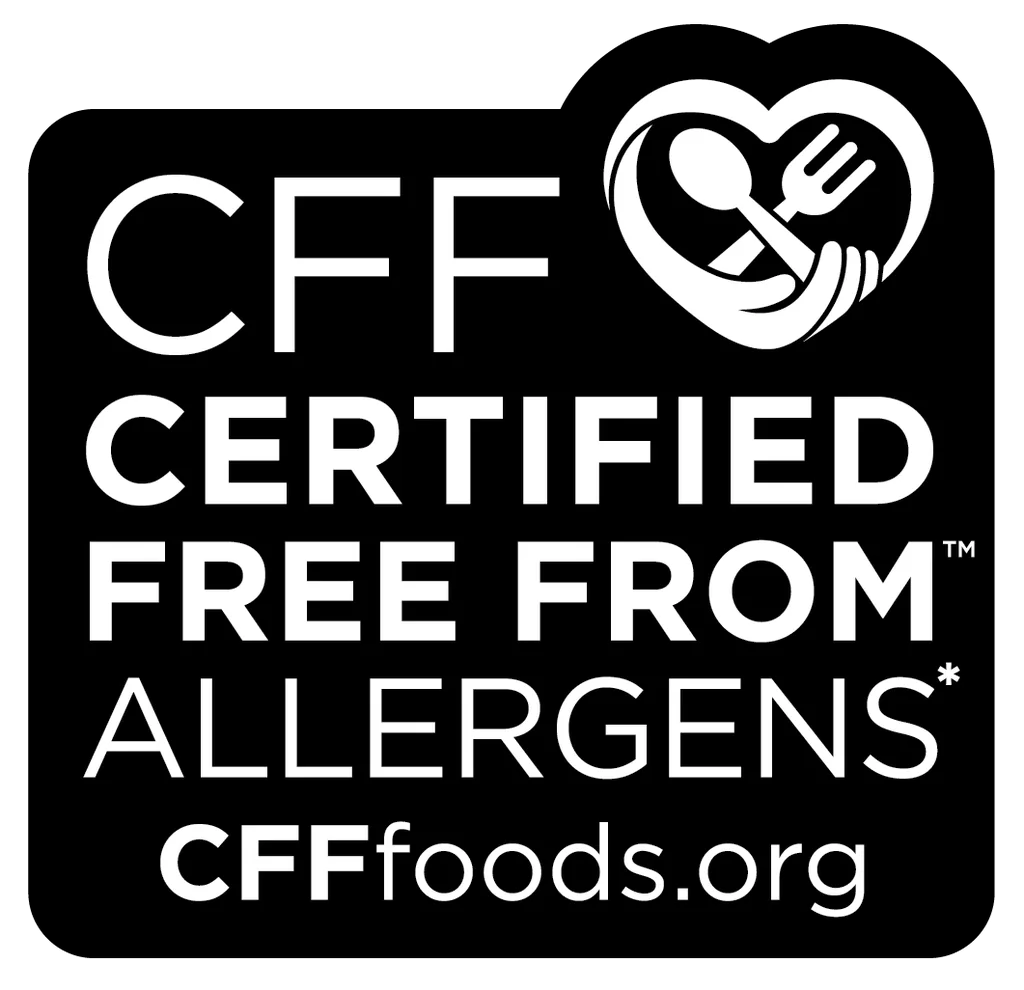
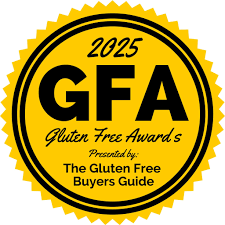
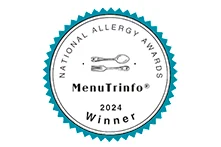
I have Celiac’s and it angers me to no end when people just assume they can say it’s GF and it’s not! I get soooo sick if I’m contaminated! Do these big companies not care who they infect with wheat and gluten? I can’t even eat something that is “processed in a facility with wheat”.
Thanks for your article. It makes me really hate big companies who really don’t care about the people they are serving.
my son was just diagnosed with Celiac, we are doing everything we can to help make his lifestyle change as smooth as possible. I am so confused as to why it’s so hard for these large, HUGE, profitable companies to get official certifications. is the cost of this certification process so ridiculous that it deters companies from doing the RIGHT thing.. is that companies that produce the products at fault or the companies that certify the products at fault.. it’s so sad to see your children get sick.. it shouldn’t be this hard…
Francesca, I am so sorry you are having a difficult time finding safe products for your son. It is a tough transition and a lot of companies seem to make it harder on us to shop safely. I share your frustration. The issue with certifications is not their expense – it is a very reasonable fee, usually based on the amount of product produced and whether there is gluten in the facility or not. It is certainly a cost these large companies could bear; I know about this because I pay the fees for all of my products to be certified, even though they are produced in a dedicated gluten-free facility. The issue is that these companies claim they do not want to allow outside certifiers into their facilities because trade secrets may be revealed. They often claim that they send their products out for testing themselves and that is good enough. The only way to convince companies that it is worth independent certification is to choose products with such certification over others without. To help you with the transition for your son, I would also suggest listening to my radio podcast interviews of a mother whose child was just diagnosed as well. We track their progress, tips, stumbling blocks and successes through weeks 1-5 and again at the 6 month check up. You can find these interviews on my radio tab of this website. Best of luck and don’t hesitate to reach out for help at support@JulesGlutenFree.com!
Thanks for a great post, Jules. More and more I see flours that say they test for gluten but give no information on what value they are using.
Hi Jules. As always, thank you for all your hard work, and sharing the fruits of your labor with our GF/Celiac community. I am VERY stringent about what I buy, how I buy, and who I buy from. I recently (about a month ago) happened upon the cereal aisle at my grocery, an aisle I usually avoid so I don’t get depressed about all the things I can’t eai anymore, and I saw that Cocoa Pebbles were now “gluten free!” Yeay! Before I purchased, I called the company with my usual barage of gluten/nut allergen related questions, and they assured me that they WERE CERTIFIED GF, and even told me that they used an outside certifying company! After my 40 minute or so conversation, I felt “safe” to go back and buy the cereal I had loved as a child…so I did. I ate it, and I didn’t think too much about it. I didn’t get violently sick, as I normally will when gluten sneaks into my system somehow. Over about a week or so I ate the cereal, and during that time I felt AWFUL!! I was lethargic, weak, achy, and my stomach was pregressively worse and wose…chalked it up to my “annual Fall cold.” I am SO angry right now after connecting the dots. It’s disgusting to see that greed out weighs the health and well-being of people…Thank you for sharing, and I will be spreading the words about this, as well as contacting Post execs
What a shame that these companies would misrepresent what is really in their products. Do they not consider, or do they not care, that many people really can’t have gluten (it’s not a fad for them) and that it will make them sick? What truly disappoints me is that it’s not just “gluten free” labels that you can’t trust, but you really can’t be sure of any advertisements that you see. I see so many things in the store that are marked as “healthy” or “whole grain” and really they are just junk.
My daughter has been eating Cocoa Pebbles for a few months now, as has my husband, both of whom are gluten intolerant (husband has Celiac). I bought a new box at Target on Friday, and of course, I made sure it had the “gluten free” label on the box.
We came home from a late movie last night, and my daughter opened the box and ate a bowl. Within 10 min., she was in agony with stomach pain, sitting on the toilet and puking into the garbage can. This went on for about two hours before she finally purged herself of it and felt better. She’s “fine” today – as fine as anyone can be after a gluten reaction that has done God knows what untold damage to her intestines. Thank God my husband hadn’t eaten any.
I am in contact with an attorney regarding this matter. They asked me specifically if the box stated that the cereal was processed in a facility or on machinery that also processed what and IT DOES NOT! Nor do they say anything like that on their website. He said if I had the cereal third-party tested and determined there is gluten of more than 20 ppm, I would indeed have a case of false advertising at the very least.
If Post doesn’t want to certify gluten free, then they should have to pay for it.
Maybe you could get Rice Dream to stop labeling their products gluten free when they contain barley in the processing. I don’t know if Fruity Pebbles has gluten but I know Rice Dream has GF certified label and it contains gluten. Here is letter from company…
http://whattofeedyourkids.blogspot.com/2008/03/rice-dreams-is-not-gluten-free.html
I would like to point out a correction to the post by “ourGFfamily”.
Only the chocolate bars produced under the Rice Dream name are certified by GFCO. Dark Chocolate Dream – Almond; Dark Chocolate – Rice Crunch; Dark Chocolate – Raspberry; Dark Chocolate Dream – Pure Dark; and Sweet Chocolate – Creamy Sweet. None of them contain barley.
GFCO does not certify the entire Rice Dream brand of products. Be sure to look for the “Certified Gluten-Free” symbol to know which products are certified by GFCO.
Thanks for the clarification, Cynthia. FYI to everyone else: there is a great list of GFCO certified products on the GIG website!
I was stupid and bought both flavors of the Pebbles cereal (Fruity & Cocoa) for my kiddos (who are also gluten intolerant). I had a little bit and was cramping within ten minutes. These may not have gluten ingredients, but they are cross-contaminated for sure…at least the batch I got.
A few weeks ago, we broke this story on The Gluten Free Minute. We too have been trying to tell Gluten Free Consumers that the only thing Post changed was the packaging. It now reads ‘Gluten Free’ where it didn’t before. They have always used “Non-Gluten” ingredients, and say they have a dedicated line, but they are still in a building that produces wheat products (conversation from Post Cereal is posted at GlutenFreeLife.tv). There is still a possibility of cross contamination and there is no real means of making sure that their personal testing is consistent. There must be accountability – it will keep companies honest.
Jules, thanks so much for continuing to post the truth. As a “news source” we are not allowed to take sides but we do strive to get the information out there for people to make an informed decision. I commend you on your direct efforts to inform the community! Bravo.
I completely disagree with all of you, esp. the complainer “Eric”. If a company markets a product as “gluten free” then the product needs to meet commonly-accepted standards, including ELISA testing. If not, then they face regulatory sanctions for false advertising. Just because they say something is “certified” doesn’t mean they have to meet YOUR definition of what “certified” means. If there is no independent agency symbol on the box, then you know there is no independent certification. But the company is certifying to its consumers (i.e., affirming as a truth) that the product is gluten-free. So why is everyone so upset?
Sesmark Rice Thins are marked as gluten free. They are not! It took me many months to figure out what was causing my severe Celiac symptoms, because I trusted Sesmark’s gluten free label. Once I eliminated the Sesmark Rice Thins, my symptoms cleared up fairly soon. But, a lot of damage was done, and I was suffering from anemia and malnutrition from eating hidden gluten in the Sesmark Rice Thins. I will no longer trust the gluten-free labels to be truthful, and actually ‘be’ free of gluten. I learned the hard way, that companies may want to jump on the gluten free bandwagon, but lack integrity. Cross-contamination is always a possibility with any product, but we should not be misled by products being labeled gluten free, when they are not. That is risking our health and lives, for company profits. That is very wrong, and the FDA needs to do it’s job, and set standards that must be followed by companies.
This may be one of those situations where we as a gluten free community have to go about getting changes implemented from two angles–first communicating with the company as some have done here, and second acting with our wallets and buying Erewhon gluten free Cocoa Crispy Brown Rice instead of Cocoa Pebbles. The name isn’t as cute, but neither is being sick! Oh–as a total sidebar, I bought the new Cocoa Pebbles treats and thought they tasted terrible. They have a very fake artificial marshmallow (is that an oxymoron?!) taste!
Thanks for a great post, Jules. More and more I see flours that say they test for gluten but give no information on what value they are using. CSA and GIG are great sources of independent verification.
Interesting to point this out, but as I look this seems to be the emerging standard. General Mills and other companies including Pebbles don’t actually put ‘certified’ on their packages and don’t have outside endorsement.
Perhaps you need to lobby more broadly?
Thanks Jules for such a thorough article! It makes me nervous when companies jump on the gluten-free bandwagon without acquiring the knowledge to do so safely.
Thank you for a very insightful and informative post. It’s a shame seeing what could be construed as underhand tactics.
That said, I’m sure it’s always good to see any effort being made rather than not at all. I’m sure they had their best intentions at heart.
Forgot to add a special thanks to you, Jules, for recognizing how important true certification is and ensuring that your products are GFCO-certified! What that means to all of us is huge, exactly as you have stated here! Your consumers and the gluten-free community as a whole are grateful that you recognized that need and followed through with true certification, one done by an independent and recognized organization.
Shirley
Glad you shared this. That’s ridiculous! Self-certified definitely is NOT certified! Glad I didn’t give in and buy a box when I saw the new “claims” they’ve made. I agree – they are a big enough company! If they want support from the GF community, they ought to do it right. Otherwise they’ll just be a joke.
Outstanding, detailed post, Jules–thank so much! I’d like to emphasize that many other companies that folks are getting their “gluten-free” products from are NOT certified either. They, too, are doing self-“certification,” which as you so correctly pointed out is not certification at all. And, there are many problems with these companies. In theory, they are holding themselves to a less than 20 ppm standard, the one proposed by the FDA, but that standard has not yet passed as you’ve reminded all. However, when the FDA sought input on the proposed standards several years back, Cynthia Kupper, Executive Director, of GIG, wrote to the FDA and stated that there were several major “gluten-free” flour manufacturers that could NOT meet the less than 20 ppm proposed standard. These major companies were never identified, but to my knowledge none of these companies ended up going forward to receive actual certification. (I just checked http://www.gfco.org.) Yet, folks continue to buy their products en masse. Every week, I read about folks who state they are gluten free, but are continuing to have health issues. I think they are being glutened on an ongoing basis by products that don’t quite make the cut. Thanks so much for spelling this issue out in black and white!
Shirley
Ugh…I just bought two boxes today and also the Pebbles bars that are now out. My husband still likes to eat like a 6 yr old when it comes to cereal and snacks so I was excited to find these for him. Hopefully they are on the up-and-up and get truly certified.
I am extremely sensitive to the smallest amount of gluten. I’ve had Celiac for 7 years now. I’ve been eating Pebbles cereal like crazy and have not gotten ill at all.
Wow. WOW. Thank you so much for this highly informative article. Reading this makes me very angry at Post cereals and hopeful that the entire GF community will make their needs known and understood to food manufacturers who would self-proclaim GF status. Sorry, not good enough. For all we know, it could just be a marketing ploy.